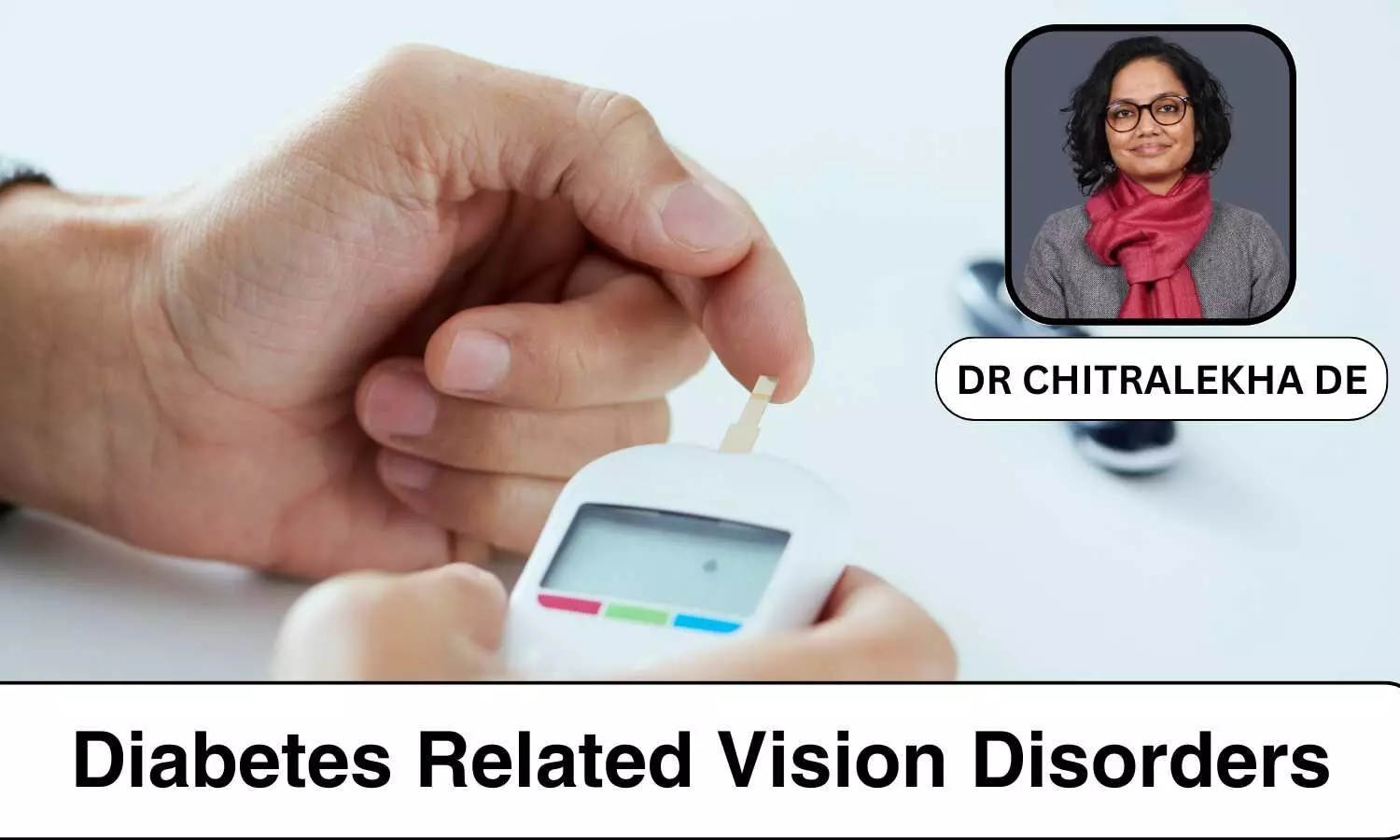Diabetes Related Vision Disorders: Prevention and Treatment Approaches - Dr Chitralekha De

As per the Diabetes study conducted by ICMR (Indian Council of Medical Research) the prevalence of diabetes is 10.1 crores. Diabetes is a global emergency resulting in increased morbidity and mortality along with economic burden on the nation. Multiple organ systems are affected by diabetes, of which chiefly are the cardiovascular system, the kidneys, the eyes, and the peripheral nerves.
Diabetes can significantly affect vision through various mechanisms. High blood glucose levels can lead to Diabetic Retinopathy, a condition where the blood vessels in the Retina get damaged. The Retina is the light sensitive nerve layer of the eye, and any damage can cause potential vision loss. Globally, around 27% of diabetic patients develop Diabetic Retinopathy, which leads to 0.4 million blindness in the world.
Additionally, Diabetes also increases the risk of cataract and glaucoma. The refractive error of the eye corrected by glasses is also affected by raised blood glucose levels.
Diabetic Retinopathy can present in various stages :
- Non-Proliferative Diabetic Retinopathy: The early stage of the disease where the retinal damage is limited. Many patients in this stage may have no visual complaints.
- Proliferative Diabetic Retinopathy: The advanced stage, where there is development of abnormal blood vessels within the eye which leads to bleeding inside the eye cavity or permanent damage to the retina causing severe vision loss. Patients in this stage present with sudden blurring of vision in one or both eyes.
- Diabetic maculopathy: In this condition, the damaged blood vessels of the retina become leaky and cause swelling of the vision area of the retina, the Macula. Such patients have blurring of both near and distant vision not correctable by glasses.
Diabetic Retinopathy management is varied and depends on the stage and severity of the disease:
- Laser: Proliferative Diabetic Retinopathy and certain cases of Diabetic Maculopathy are treated by Green Laser photocoagulation. This may be done in single or multiple sittings as per the requirement of the patient.
- Injections (Intravitreal Injections): These are special medications which are administered inside the eye to control the damage due to Diabetes, especially in cases of Diabetic Maculopath.
- Vitreo-Retinal Surgeries: The advanced cases of Diabetic Retinopathy require complex microsurgical procedures.
All these treatment modalities help to control the disease, the damage, however, is never completely reversible.
Thus, the most crucial step in management of Diabetic eye damage is prevention of the disease itself. Strict Diabetes control prevents any damage to the Retina, even in long-term Diabetic patients.
The next step in management is regular comprehensive eye checkup of all Diabetic patients irrespective of whether they are experiencing any eye complaints or not as the initial stages of Diabetic Retinopathy do not produce any symptoms. However, the management and response to treatment in the initial stages is more effective than in the advanced stages with severe vision loss.
All Diabetic patients should therefore strictly monitor their blood glucose levels and be under the care of an Endocrinologist. The diabetic management protocol should include regular and periodic eye examinations for all patients.


